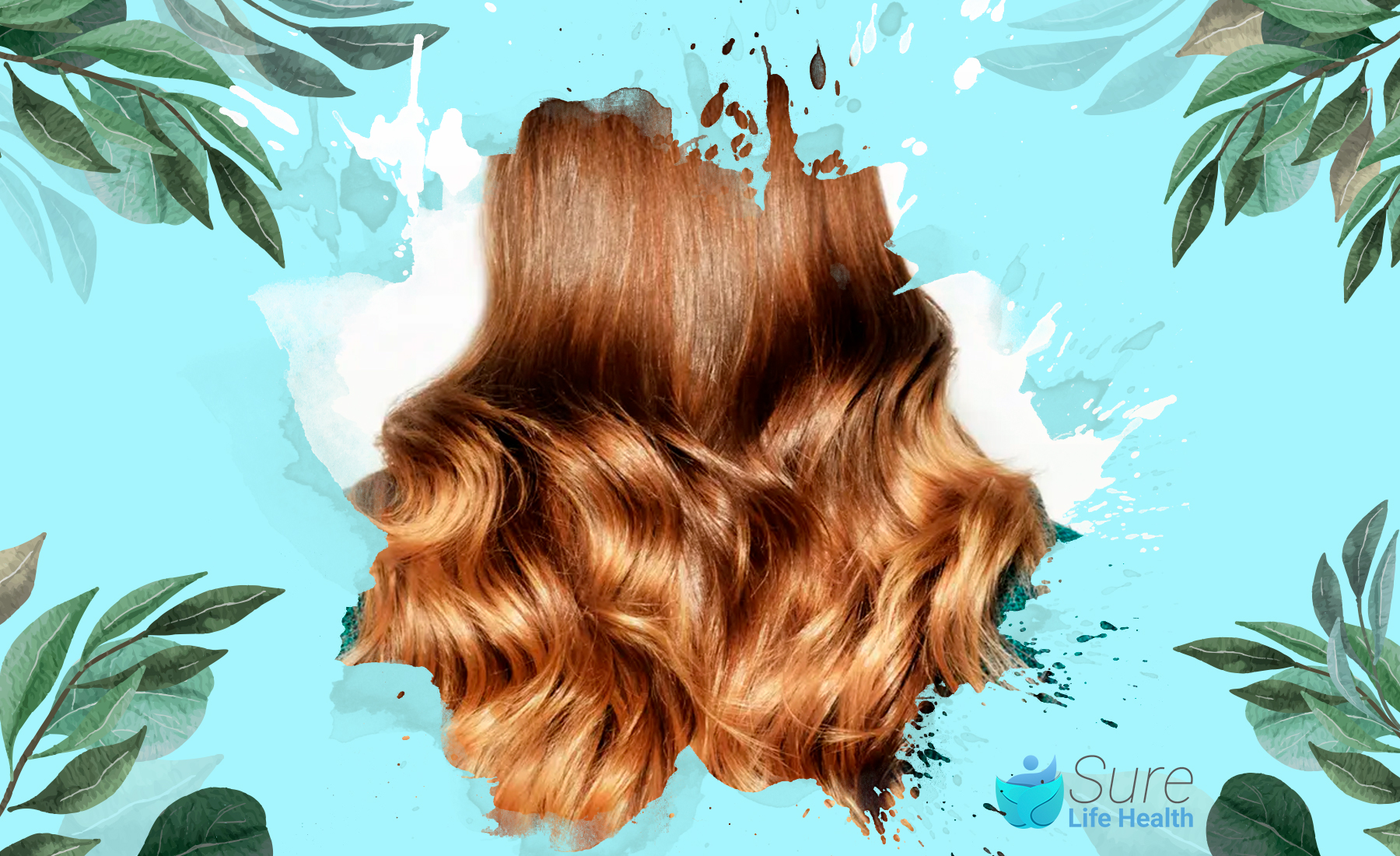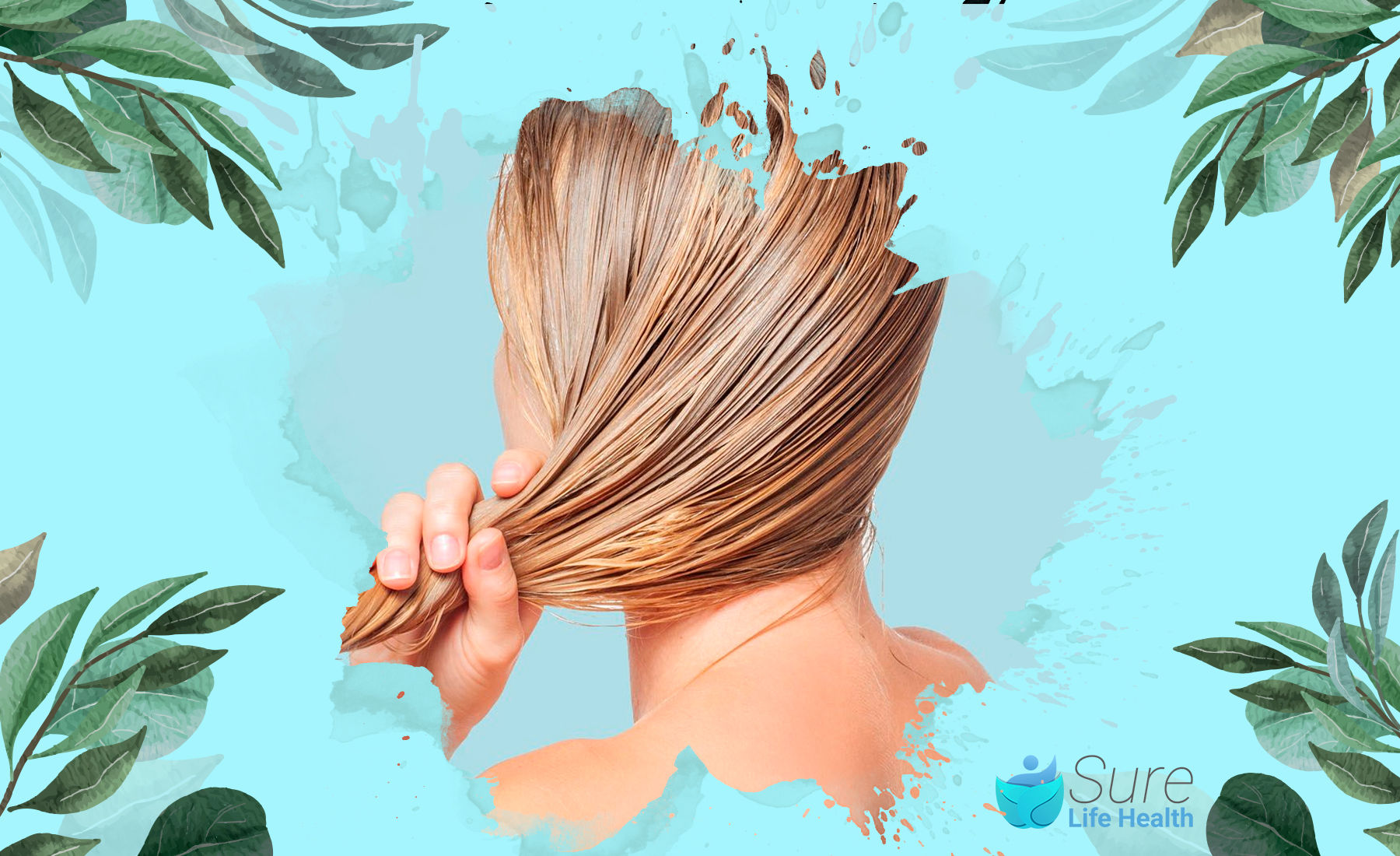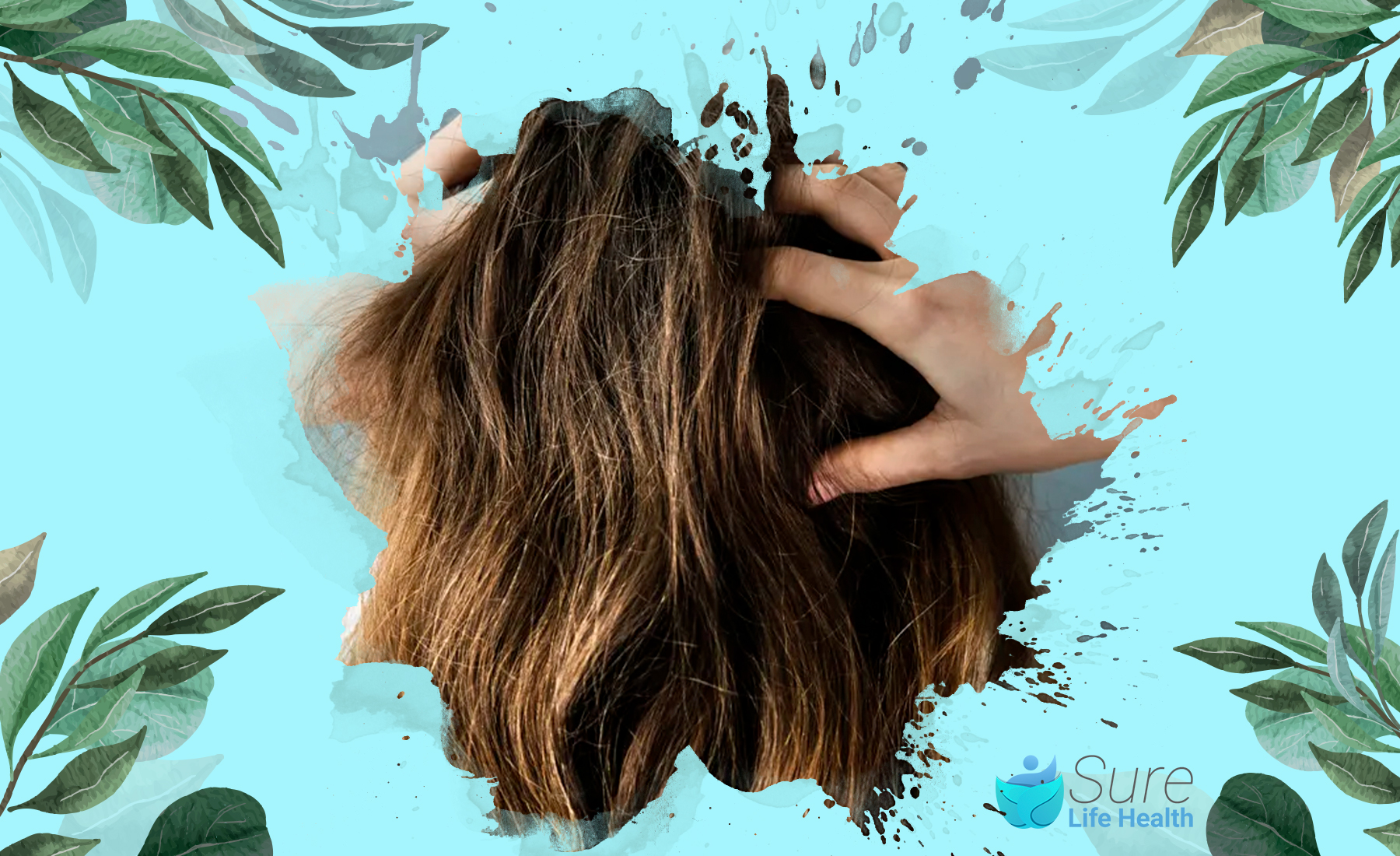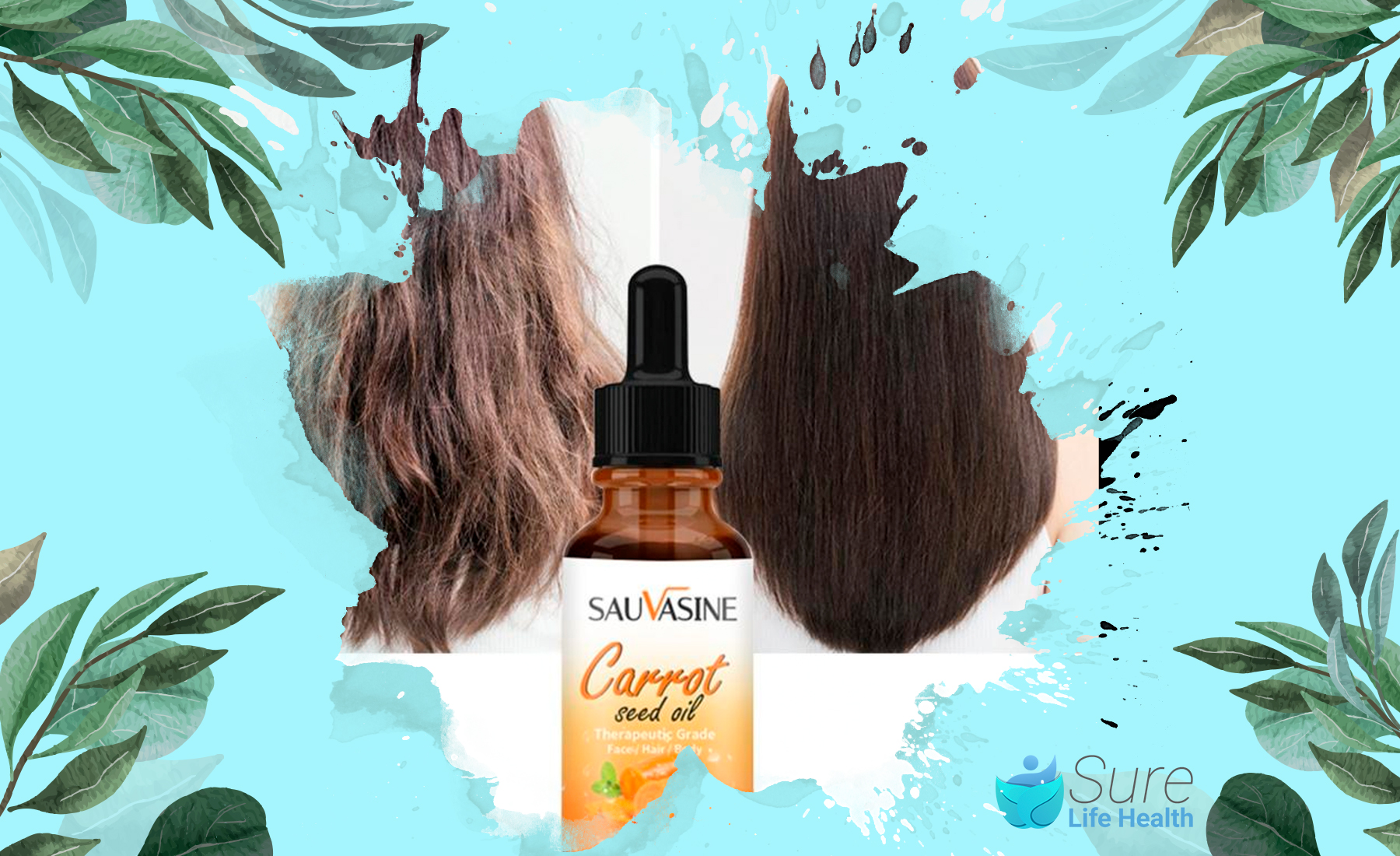Carrots are a well-known vegetable in our daily lives, often praised for their high vitamin A content known to benefit vision.
However, there’s more to carrots than meets the eye. Today, with Sure Life Health, we delve into the lesser-known advantages of carrot oil, particularly its efficacy in hair care.
Join us as we uncover the myriad benefits of carrot oil and address the query: “Is carrot oil beneficial for hair?”
Is Carrot Oil Good for Hair?
Carrot oil, derived from the roots or seeds of carrots infused into a carrier oil, has been utilized predominantly in Africa, West Asia, and Europe for culinary and medicinal purposes.
Its inherent biological properties include antimicrobial and hypotensive qualities. Moreoever, carrot oil can act as a potent eliminator of harmful bacteria, as well as stimulate blood circulation to the scalp.
Rich in essential vitamins such as A, B, C, and E, along with minerals like phosphorus and magnesium, carrot oil offers a protective shield against external aggressors like UV rays and environmental pollutants, safeguarding hair from damage.

Benefits of Carrot Oil for Hair
The benefits of carrot oil for hair are plentiful and here are some you may want to know.
Minimizes Damage From Free Radicals
Your hair faces a lot of daily stressors, including exposure to UV rays and environmental pollutants, leading to a process known as oxidation. However, the antioxidants found in carrot seed oil serve as powerful defenders against the free radicals in this process.
Enriched with vitamins A, C, and E, along with beta-carotene, carrot oil shields the hair from oxidative damage, safeguarding its health and vitality. Furthermore, these nutrients play a pivotal role in promoting cell growth and repair, crucial for maintaining the overall health of hair follicles.

Boosts Blood Circulation
Regardless of your hair type, adequate blood flow to the scalp is crucial for its overall health. If you’re experiencing reduced blood circulation in your scalp, try using carrot oil.
Carrot oil’s regenerative properties work to enhance blood flow, ensuring that more oxygen and nutrients are delivered to the hair follicles. This influx of essential elements promotes healthy hair growth and strengthens the hair from root to tip.
Improves Hair Shine
Carrot oil’s unique blend of vitamins and nutrients makes it an excellent choice for enhancing the shine and luster of lackluster hair.
When applied topically, carrot oil infuses the hair with essential nutrients that promote optimal hair health. As a result, your hair appears shinier and more vibrant.

Promotes Hair Growth
In the quest for hair regrowth, it’s essential to ensure that every facet of your hair care routine fosters healthy growth. And carrot oil, along with its essential nutrients, fits the bill perfectly.
By adding carrot oil into your styling routine, you not only nourish your hair but also stimulate the growth of new strands while mitigating hair breakage, all without resorting to harsh chemicals.
Strengthens Hair Fibers
For individuals with fine or fragile hair prone to breakage, carrot oil offers a solution to fortify and protect strands.
Its inherent properties support overall hair health by reinforcing hair structure from the outside in. Regular application of carrot oil strengthens hair fibers. It also reduces breakage and enhances the resilience of your locks.

Moisturizes Dry Hair
Similar to other popular oil treatments like coconut oil or olive oil, carrot oil stands out as an exceptional remedy for dry hair. As a natural hair treatment, carrot oil serves to condition and shield your hair, imparting vital moisture and protection.
Its protective properties help lock in moisture, ensuring that strands remain hydrated and vibrant.

Targets Stubborn Scalp Problems
For individuals grappling with persistent dryness or scalp issues, carrot oil emerges as a potent solution. With its antifungal and antibacterial properties, carrot oil effectively combats scalp conditions.
These conditions include dandruff and infections. By addressing the underlying causes of common scalp ailments, such as imbalances, carrot oil fosters a healthier scalp environment for optimal hair health.

Using Carrot Oil for Haircare
If you want to promote hair growth, strengthen your hair against heat damage, or reduce dandruff and dryness, consider the benefits of carrot oil for hair. Adding carrot oil to your hair care routine can be very effective. Carrot oil is often found in oils, creams, conditioners, and hair masks as a moisturizing agent, but it’s best to use it only once or twice a week. Many store-bought carrot oil products can be left in the hair between washes or used as a rinse.
If you prefer DIY methods or can’t find carrot oil products nearby, there are easy ways to use carrot oil for hair growth at home. To make your own hair mask, rinse, or deep conditioner, mix 3-4 drops of carrot essential oil with 2-4 tablespoons of a carrier oil like coconut or grapeseed oil. Use this mixture sparingly, based on your hair type. Apply it by massaging it into your scalp and working it through your hair. Comb through, cover with a plastic cap, and leave it on for an hour before washing it out with shampoo.
To create a rinse, mix 3-4 drops of carrot essential oil with 2 cups of water and 1 teaspoon of apple cider vinegar. Apply this mixture to your hair after shampooing, leave it on for 5 minutes, and then rinse again.
For a carrot juice spray, follow these steps: juice carrots with some water to create a liquid mixture. Pour the carrot juice into a spray bottle. Spray the juice evenly over dry hair, including the roots and ends. Leave the carrot juice on for 15 minutes to absorb the nutrients, then wash and condition your hair as usual.

How Often to Use Carrot Oil on Hair?
Pure carrot oil can be applied to the hair and scalp 2-3 times a week, preferably when mixed with carrier oils such as coconut oil or grapeseed oil. For carrot oil-infused products, usage should follow the instructions provided on the product packaging.
Adhering to a regular hair care routine can be challenging, especially for those with busy schedules. However, it’s essential not to stress over the frequency of use, as stress itself can contribute to hair loss.
Instead, prioritize consistency in your hair care regimen and avoid unnecessary worry. By maintaining a steady routine without undue stress, you’ll be able to achieve optimal results and promote healthier hair over time.
Who Benefits Most From Carrot Oil Usage?
The benefits of carrot oil are there for anyone to take. Carrot oil stands out as a highly advantageous addition to your haircare regimen, offering a myriad of benefits with simplicity and ease of use.
Those seeking to fortify, soften, and shield their locks can greatly benefit from it. This versatile oil is particularly advantageous for individuals with fine hair, curly hair, and darker hair tones.
Can Carrot Oil Be Ingested?
While there is limited research specifically addressing the risks of ingesting carrot essential oil, it’s important to note that most essential oils are highly concentrated substances.
As a general precautionary measure, it’s advisable to avoid consuming essential oils, including carrot oil.
The high concentration levels in essential oils can potentially lead to adverse reactions or unintended side effects when ingested.
Potential Hazards Of Carrot Oil For Hair
Before integrating carrot oil into your haircare routine, it’s crucial to be aware of the potential hazards associated with its usage. Here are some risks to consider:
- Allergic Reactions: Like any new hair treatment, there is a risk of allergic reactions when using carrot oil. Prior to applying it to your hair, conduct a patch test to assess for any adverse reactions. Additionally, it’s recommended to dilute carrot oil with a carrier oil, such as coconut oil, before applying it to your skin.
- Hair and Scalp Discoloration: While individuals with darker hair may not be affected, overuse of carrot oil can potentially tint lighter hair and scalps orange. Excessive application of carrot oil may also cause the skin of the scalp to develop an orange hue. To mitigate this risk, use carrot oil sparingly, especially if you have blonde or other light-colored hair.
- Psychoactive Effects: Carrot oil contains a small amount of a compound called myristicin, which can induce psychoactive effects if consumed internally in large quantities. However, these effects are only likely to occur with internal ingestion of carrot oil, not through topical application.
- Nausea and Vomiting: Ingesting excessive amounts of carrot oil can lead to nausea and vomiting. It’s important to note that pregnant or breastfeeding women should never consume carrot oil internally. Additionally, individuals with asthma or epilepsy should avoid internal consumption of carrot oil.

Conclusion
Is carrot oil good for hair? By now, you’re likely well-acquainted with the numerous benefits carrot oil offers for your hair. Its ability to fortify strands, combat damage, and promote growth while imparting a radiant shine makes it a valuable addition to any haircare routine. Don’t hesitate to incorporate carrot oil into your regimen starting today.
Do you still have lingering hair-related concerns? Feel free to share them in the comments below. Additionally, we invite you to share your favorite haircare tips with others, fostering a community of shared knowledge and support.
Don’t forget to explore more informative and helpful blogs from Sure Life Health, where we continue to uncover the best in natural health care.
Professor Gaye Cunnane, PhD, MB, FRCPI
As the Director of Health and Wellbeing at RCPI, Professor Gaye Cunnane is at the helm of initiatives aimed at enhancing the health and well-being of RCPI Trainers and Trainees. Her role extends beyond administration; she is also a respected clinical professor of rheumatology and a consultant rheumatologist at Trinity College Dublin (TCD) and St James’s Hospital. Prof. Cunnane’s medical journey began at TCD, where she graduated from medical school, and her path has been marked by both clinical and academic excellence.
After completing her basic clinical training in medicine, she embarked on PhD studies at University College Dublin and St Vincent’s University Hospital. Her research during this period was focused on prognostic markers in early inflammatory arthritis, a project that saw her collaborating with esteemed universities across Europe, including in Switzerland, The Netherlands, the UK, and Sweden.
Prof. Cunnane’s career took her to the University of California, San Francisco, where she spent three years delving into research on new treatments for lupus. Her academic prowess led her to the University of Leeds in 2001 as a senior lecturer, before returning to Ireland in 2003 to assume her current roles. She has also served as the National Specialty Director for Rheumatology training in Ireland, Programme Director for Basic Specialist Training with RCPI, and as a past President of the Irish Society for Rheumatology.
PUBLISHED ARTICLES
“Rheumatic disease differentiation using immunoglobulin G sugar printing by high-density electrophoresis”: Published in The Journal of Rheumatology, this study reflects her in-depth investigation into rheumatic diseases.
“Benefits of exercise in patients with rheumatoid arthritis: a randomized controlled trial”: This research work, highlighting the positive impact of exercise on rheumatoid arthritis, underscores Prof. Cunnane’s dedication to practical, patient-centered research.
Additionally, Prof. Cunnane has made notable contributions to the Annals of the Rheumatic Diseases, discussing early referral, diagnosis, and treatment of rheumatoid arthritis. She has also been involved in a study on the NCBI platform investigating exercise benefits in rheumatoid arthritis patients.
Professor Gaye Cunnane’s career is a testament to her commitment to improving patient outcomes in rheumatology through rigorous research, clinical excellence, and dedicated teaching. Her work continues to influence the field of rheumatology, both in Ireland and internationally.

